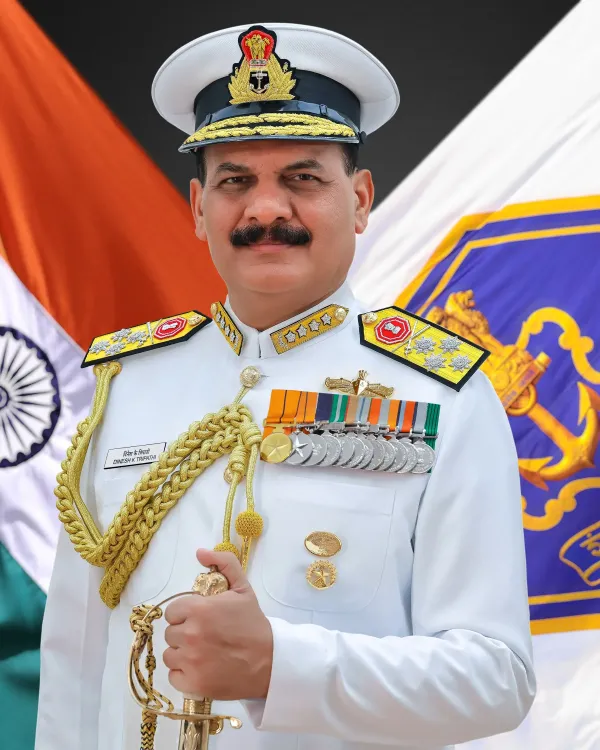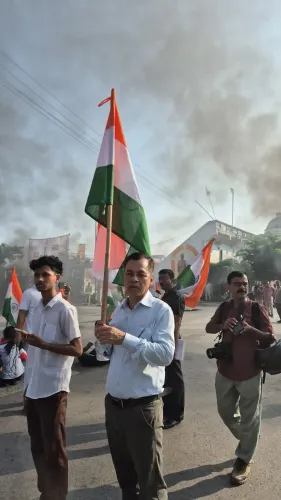Why Did Navy Chief Meet PM Modi Amid Tensions With Pakistan?

Synopsis
Key Takeaways
- Admiral Dinesh K. Tripathi met PM Modi to discuss military strategy.
- Full operational freedom granted to armed forces.
- Suspension of mail and parcel exchanges with Pakistan.
- Comprehensive actions against Pakistan post-terror attack.
- Focus on maritime security and tri-services coordination.
New Delhi, May 3 (NationPress) Amidst rising tensions between India and Pakistan following the tragic terrorist incident in Pahalgam that resulted in the deaths of 26 individuals, predominantly tourists, Chief of Naval Staff Admiral Dinesh K. Tripathi convened with Prime Minister Narendra Modi at 7, Lok Kalyan Marg on Saturday.
This significant meeting occurs during a period when the government has granted the armed forces full operational autonomy to retaliate against the attack, which is widely perceived to have been orchestrated from across the border.
The discussions between Admiral Tripathi and PM Modi are interpreted within the framework of the government’s comprehensive military and strategic considerations post the Pahalgam attack. Sources suggest that the focus was on maritime security, troop preparedness, and synchronized responses among the three services as part of the changing security landscape.
Earlier this week, Prime Minister Modi presided over a crucial meeting with the Chiefs of the Army, Navy, and Air Force, along with Defence Minister Rajnath Singh and National Security Advisor Ajit Doval.
During this high-impact review, the Prime Minister entrusted military leaders with the authority to determine the timing, method, and targets of India’s response. The political leadership has reportedly lifted all restrictions, indicating that a robust and well-calibrated counteraction might be imminent.
In a related development on Saturday, India halted all forms of mail and parcel exchanges with Pakistan via both air and land routes.
This directive was issued by the Department of Posts, under the Ministry of Communications. This decision came mere hours after India executed a total ban on all direct and indirect imports from Pakistan, barred Pakistan-flagged vessels from docking at Indian ports, and restricted Indian ships from navigating to ports in Pakistan.
These immediate actions are a direct consequence of the April 22 terrorist attack in Jammu and Kashmir’s Pahalgam district, which claimed the lives of 26 civilians. The Indian government has cited "cross-border connections" as the backdrop for the attack and has vowed to take stringent measures against those accountable.









